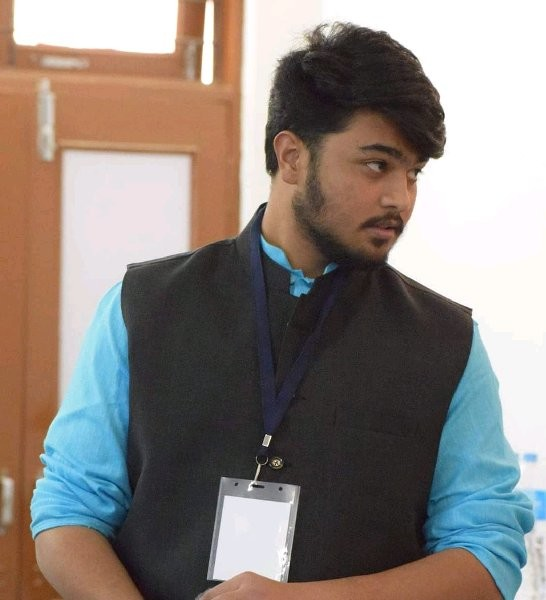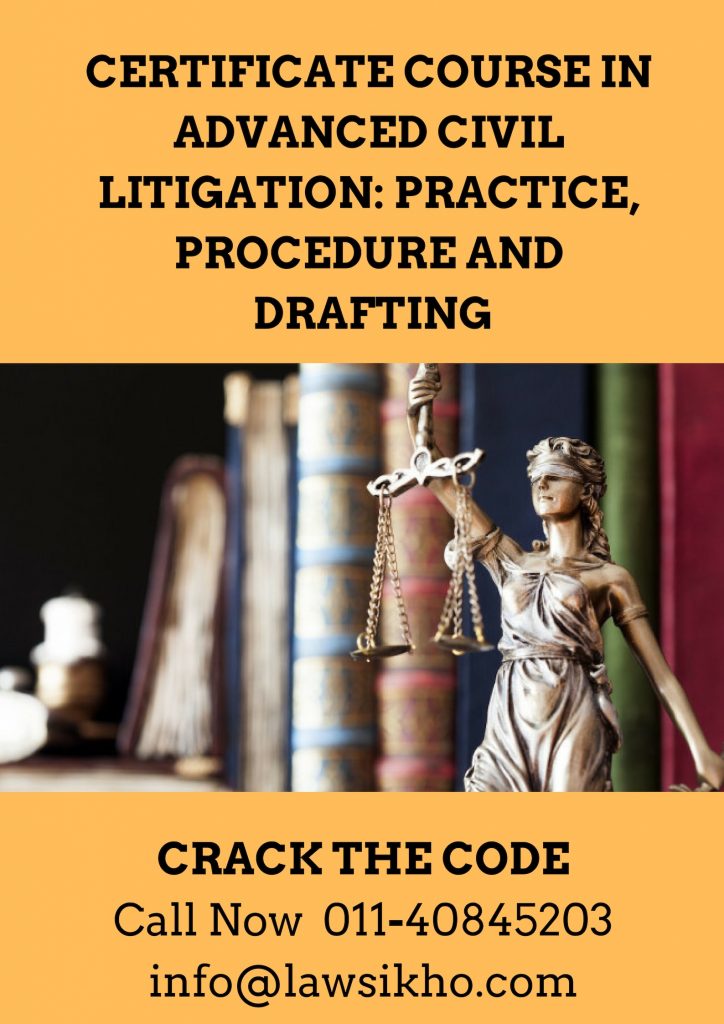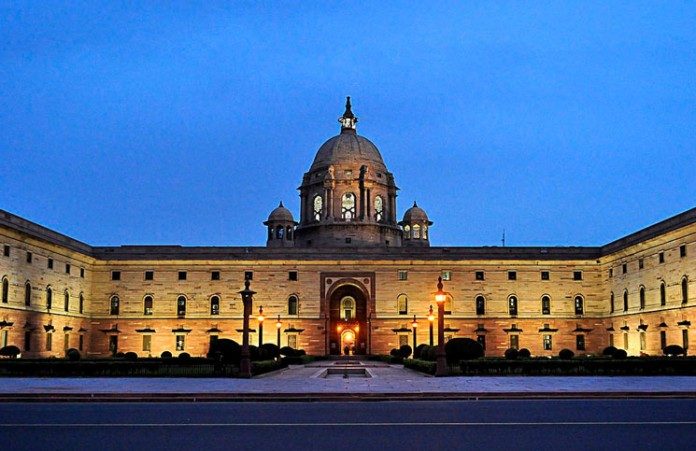This Article is written by Adarsh Singh Thakur, 3rd-year student, Indore Institute of Law. He discusses the Position and the Powers provided to the President by the Constitution.

India has a Parliamentary form of Government which is based on the British system therefore, there are two Houses of Parliament in India and the President which together comprise of the Parliament. In India, the President has the same position as the Queen or King of England enjoys and therefore he is the nominal or titular Head of the State. As the Head of the State, he enjoys a wide variety of powers and thus the Constitution of India also provides many provisions about the position of the President of India.
The President of India
Article 52 of the Indian Constitution provides that there shall be a President of India. Thus, the position of the President is provided for in the Constitution. Under Article 53, the executive powers of the Union are vested in the President and therefore, he plays an important role in the governance of India.
How is the President Elected?
In India, the President is elected by elections. These elections of President are indirect in nature which means that the people of India do not directly vote for the President but the representatives of the people vote for him.
What are the Qualifications of a President?
In Order to contest the elections of a president, there are certain qualifications which a person has to possess in order to be eligible for the position of President of India. Article 58 of the Constitution provides that for a person to be eligible for the post of President of India should be a citizen of India, is at least 35 years of age and is qualified to be a member of the Lok Sabha. Also, if a person holds any office of profit, then he cannot be allowed to be elected as the President.
A President is conferred with Executive powers of the Union and therefore, he cannot be a member of any State or Union Legislature and if a person who is elected as the President is a member of a legislature at the time of his election, he is deemed to have vacated his seat when he enters the office of President. (Article 59)
What is the manner of Election of the President?
As stated earlier, the election of President is not done by direct votes of the people. Article 54 provides the manner of election of the President. This article provides that there should be an Electoral college which includes the Elected Members of the Houses of Parliament and the Elected Members of the State Legislative Assemblies. Thus, in the Electoral College, the nominated members of the legislature are not allowed to vote for President.
The system of Proportional voting is adopted for this election, in which the number of votes is provided in proportion to the population of the state in case of State Legislature Members and the Members of Parliament get their number of votes by dividing the total votes of the State Legislature with the total number of elected members of Parliament.
For e.g. to find the number of Votes for the members of Legislature of a State, the total population of the State will be divided by the number of elected members. The quotient which will be obtained will be divided by 1000 to find out the multiples of 1000. If the quotient is 10,55,000 then after dividing it by 1000, we get 1055. So each member of the Legislature will get 1055 votes. Similarly to get the votes for Members of Parliament, the total votes of all the State legislature will be divided by the total number of members of Parliament who have been elected.
There is a single transferable vote which is cast by every elected member of the legislature through a secret ballot. The representatives of the People have to give their votes on the basis of preference. For e.g., if there are four candidates for the election A, B, C and D then each member will select his first preference, the second preference and so on. If after the count no majority is established, then the candidate with the least amount of votes will be removed and his votes will be transferred to the other candidates. So, if C gets the least number of votes his votes will be transferred to A, B and d based on preference. This will continue until one candidate secures majority and he will be elected as the President.
Who administers the Oath of the President?
After being elected, the President has to take an oath before entering his office. This oath is administered by the Chief Justice of India and if he is not able to administer it by some reason, then the senior most judge of the Supreme Court administers the Oath. (Article 60)
What is the tenure of the President?
The person after being elected takes charge of the office of President. Article 56 provides the provision regarding tenure or the term of the President. According to this Article, the President holds his office for a period of 5 years from the date of entering the office. The President can continue to hold his office even after the end of five years till the time the next elected person takes charge of the office.

A person who has been elected President once can also be re-elected and therefore the tenure of the President can be more than 5 years if he is re-elected.(Article 57)
A President also has the option of resigning from his office even before his term ends. He can resign by writing his intention to the Vice President.
What is the meaning of Impeachment?
Article 61 provides the provision of impeachment of the President. It means that the President can be removed from his post even before the expiry of his term and this can be done in cases where he violates the Constitution.
For impeaching a President, a charge can be brought up in either Houses of Parliament and it should be presented in the form of a proposal which is to be signed by at least 1/4th of the total members of the house. After the proposal is made, the House votes on it and if it is passed by a 2/3rd majority the other House starts an investigation regarding the violation. If after the investigation, the house passes the proposal with a 2/3rd majority then it will lead to the impeachment of the President which means he/she will have to leave his office.
What are the Powers of President?
As the Head of the Executive the President is conferred with a wide variety of powers which are provided to him by the Constitution. The powers of the President can be classified into several categories and
Executive Powers
As the Executive Head of the State, the President enjoys many executive powers. All the actions and decisions of the Government are taken in the name of the President.
Head of the Armed Forces
Under Article 53, the supreme command of the armed forces of the country is vested in the President. Thus, the President has the power to declare war with any other country and also the power to conclude peace. This is done under the regulation of Parliament.
Power to make appointments
The President has the power to appoint many constitutional officers and the members of the Union Government. They include:
| The Prime Minister |
| Chief Justice of India |
| Attorney General of India |
| Comptroller and Auditor General of India |
| Governors of States |
| Chairperson of the National Human Rights Commission |
| Chief Election Commissioner and other Election Commissioners |
| Administrators of Union Territories |
Powers relating to the Council of Ministers
The President has to exercise his Executive powers on the advice of the Council of Ministers so he is subjected to some limitations in exercising powers. But he has the power to send back the recommendation of the council for reconsideration. The council may or may not accept such a recommendation. So, the President while being the Executive head in name, the actual power resides with the Council of Ministers headed by the Prime Minister.
But despite such limitations, the Prime Minister also has certain duties which he has to fulfil towards the President and it includes, The duty to communicate all the decisions made by the council on the administration and legislation of the country, the duty to such information as the President may demand etc.
Legislative Powers
The President despite being the executive head of the State, also possess many legislative powers which are important for the legislation of the country.
Assent of the President
For any bill to get the sanction of law, it has to receive the assent of the President. Thus only when the President gives his assent to a bill which has been passed by both the houses of Parliament, the bill can become a valid law. This means that the President is an integral part of the Parliament in India.
The President also possess the power to veto the bill which is presented to him. The veto means that the President has the power to send the bill back to the Parliament if the President thinks that some reconsideration should be made in the bill. But if the Parliament sends the bill again without any changes then the President has to give his assent to the bill.
In some cases, the Bills presented to the Governor by the State Legislature may be reserved by the Governor for the consideration of the president if that bill is not money bill of the State legislature. The President can accept it or tell the Governor to send it back for reconsideration or he may direct him to not send it back. If the State legislature again sends the bill and the Governor again reserves the bill for consideration of the President, he is not obliged to accept that bill.
In case of a Money Bill, the previous recommendation of the President is necessary as a result, the President may either give his assent or withhold it but he cannot send the bill back to the house for reconsideration.
Power to Summon and Prorogue both the houses
The President has the power to summon either or both the Houses. The President also has the power to dissolve the House of People in some cases. Prorogue means that the house is discontinued without dissolving the House. The President also addresses the Houses after the general elections are concluded.
The President also possesses the power to summon a joint sitting of the house in cases of a deadlock in which both houses sit together and the conflict is resolved.
Power to Promulgate Ordinance
Under Article 123 of the Constitution, when the Parliament is not in session and there is an urgency, the President has the power to issue an ordinance and such an ordinance has the force of law. This ordinance remains valid for six weeks from the date when the Legislature resumes its session. he effect of the ordinance is the same as the act of Legislature and thus the President is entrusted with great legislative power.
Nominating Members to Parliament
The President has the power to nominate 2 members of the Anglo-Indian community in the House of People if he thinks that they are not represented properly. He also the right to nominate 12 members in the Council of States from the field of Arts, Literature, Science, Social Science etc.
Judicial Powers
The President of India is also provided with some judicial powers which can be exercised by him by the authority given to him under Article 72 of the Constitution. Under article 72 the President has the power to give reprieves, pardons, respites, remission and commutation of sentence.
Reprieve means that the sentence of a person can be suspended for a temporary period of time. In pardons, the person files a mercy petition to the President and it is usually applied for in cases where the Supreme Court upholds the Capital punishment. If the President grants the pardon, then the person is relieved of any sentence and becomes free from any punishment. Under Respite, the person who is held guilty is awarded less punishment while under remission his the amount of sentence awarded to a person is reduced after it has been awarded by the Court. In Commutation, the punishment of a person is changed from one to another. For. e.g., if the President approves the commutation of sentence, then a person who has been awarded Capital Punishment may instead be awarded life imprisonment.
Power to declare Emergency
Under the Provisions of Article 352, 356 and 350 the president has the power to declare emergency situation either in the whole territory of India or in any State or part of it.
There are 3 types of Emergency which can be declared by the president:
- National Emergency (Article 352)
- State Emergency (Article 356)
- Financial Emergency (Article 360)
During Emergency, any rights including Fundamental rights except for Article 20 and 21 can be suspended by the President and the Parliament can also pass a resolution to impose President’s rule in any State.
Also, all the Government Contracts made by the Union are made in the name of the President and in the absence of this requirement being fulfilled, a Government contract cannot be regarded as valid.
Is the President a Titular head?
From the various positions, t can be seen that the President has been vested with many powers under the Constitution and all the decisions and actions of the Government are taken in his name. But while there are many powers which are enjoyed by the president, many of them are in actual practice, residing with the Council of Ministers which is headed by the Prime Minister.
This position of the President is the same as the King of England and thus the Statement that the President is the Nominal or Titular Head of the State is true and the Prime Minister is the actual head.
Conclusion
In India, the President is called the Executive head but he is only a titular head. Even though the President is given many powers, many of them are not very effective for e.g. even if the president sends a bill back to the Houses of Parliament for some modifications, the Parliament can resend it without any modifications and the President is bound to give his assent.
Also, the President does not play an active role in the affairs of the State and the real Executive power is vested in the Council of Ministers headed by the Prime Minister. So, the Prime Minister is the real head of the state and the President is the head only in name.
 Serato DJ Crack 2025Serato DJ PRO Crack
Serato DJ Crack 2025Serato DJ PRO Crack









 Allow notifications
Allow notifications


